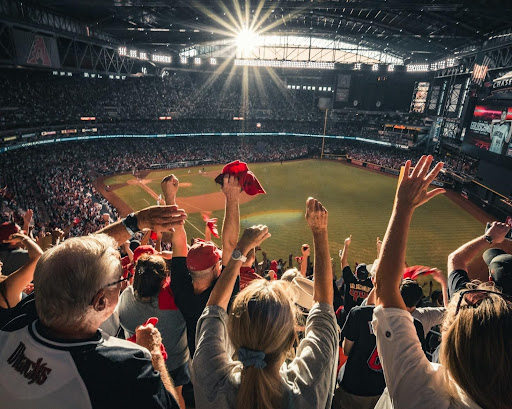
The Business Impact of Hosting Major Sporting Events
Major sporting events are more than just games—they are powerful economic catalysts that can transform the local business landscape. These events generate a temporary but significant economic boost, affecting various sectors such as retail, hospitality, transportation, and digital services. From increased foot traffic to higher sales figures, the ripple effects of hosting large-scale sports events are far-reaching.
During match weekends, local vendors, transport providers, and hospitality services often experience a surge in activity. Economic reports indicate that revenues can double or even triple during these periods, especially in cities with well-developed infrastructure and a history of hosting similar events. Hotels in host cities typically report near-full occupancy during national tournaments, while digital platforms tied to sports—such as betting sites, streaming services, and mobile apps—see a notable increase in user engagement.
The economic impact of these events extends beyond the stadium walls. Local businesses, particularly those located near event venues, often prepare months in advance for the influx of visitors. Food stalls, delivery services, bars, and souvenir shops see a sharp rise in customers, leading many to hire temporary staff or expand their inventory. This peak in demand also fosters new partnerships between local businesses and digital platforms, creating opportunities for cross-promotion and shared revenue streams.
Local Commerce and Infrastructure
The financial benefits of hosting major sporting events come from multiple sources. First, there is a significant increase in foot traffic before and after matches, which drives spending on transportation, meals, and local experiences. Second, temporary collaborations with delivery services and advertisers help businesses reach a broader audience. Third, some betting services integrate with local businesses through affiliate deals, linking street-level commerce with the online sports audience.
For example, users accessing betting platforms like Afropari may also order food from nearby restaurants, creating a multiplier effect that benefits multiple sectors. During match-heavy weekends, the rise in betting activity supports not only bookmakers but also local businesses that cater to fans. This interconnected web of commerce highlights how sporting events can stimulate economic growth at both the macro and micro levels.
Digital Sports Interaction and New Opportunities
Modern sports engagement has evolved significantly, with digital platforms playing a central role. Social media, streaming services, and betting apps allow fans to interact with live commentary, real-time odds, and predictive analytics. This shift has given rise to a secondary digital economy, where sports fans engage in more than just watching—they predict, compare, and bet.
Platforms that offer mobile wagering often see a surge in users during major events. The interest in predictions, live updates, and interactive content increases time spent on these apps. One growing trend is the use of Afropari during league tournaments, which brings an intense wave of app downloads and transactions. This digital engagement also benefits content creators, sports analysts, and event promoters, who gain more exposure through "watch-and-win" campaigns and viewer-based rewards.
Moreover, the data collected during these events helps organizers and sponsors refine their marketing strategies. This information leads to better-targeted campaigns and increased investment in both the tech and retail environments of the region.
Social Engagement and Broader Participation
Sports events foster social engagement, bringing people together in both physical and digital spaces. Fans follow players, share opinions, and influence betting behavior. Online communities and fan groups play a crucial role in shaping the culture around sports, driving conversations and interactions that extend beyond the game itself.
One notable trend is the growing recognition of women in eSports. While traditional men’s football and basketball still dominate mainstream coverage, the digital gaming community has expanded to include female-led teams and streamers. These individuals attract sponsorships, media attention, and betting markets, creating new consumer segments and influencing how brands approach sports-related campaigns.
In urban areas, cafés, lounges, and sports bars now showcase both real and virtual competitions, offering hybrid experiences for fans who want more than just the final score. This blend of physical and digital participation translates into increased spending, further strengthening the local economy.
Final Remarks on Sports and Local Economies
Business owners have come to understand the value of the sports calendar, carefully tracking dates and planning for surges in demand. For betting platforms and retailers, it is no longer just about the match—it is about the entire ecosystem of demand that surrounds it.
Sports tourism, digital betting, and on-site commerce form a chain of interdependent activities. When managed effectively, each part supports the others, creating a cycle of economic growth. Cities that promote sporting events also promote local business, reinforcing the connection between leisure and income.
This cycle continues: more matches lead to more demand, which in turn leads to more services. With the right planning, even small businesses can benefit. The key lies in recognizing when fans will spend and preparing for their return.
